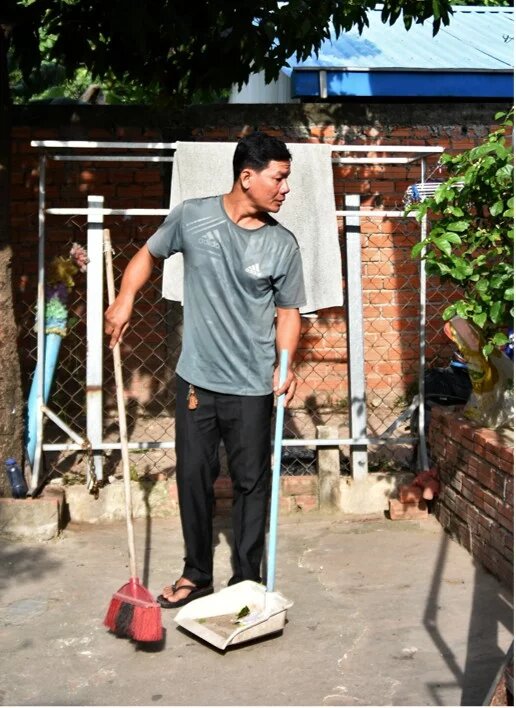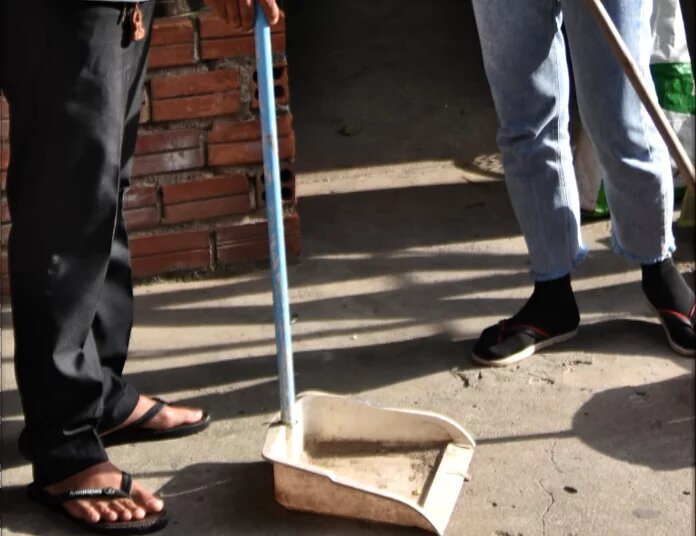
Misogynistic social norms and gender roles heavily favor men in Cambodia, a sad trend that transcends many parts of the world. These norms can be so entrenched and hard to change that even frank discussions around changing attitudes towards gender equality, gender-based violence and empowerment of marginalized groups can be fraught.

Socheat is a security guard who has previously worked in construction and as a waste picker and motorcycle taxi driver. He decided to join discussions centering around gender roles in the home, violence against women and sexual harassment in 2021. The space exposed Socheat to differing opinions on these issues and even provided training on how to better advocate for a more inclusive and equal community.
A big takeaway for Socheat was the division of labor in the household. Even though he had helped around the house, he never realized how highly gendered work was in his community. This spurred him to initiate change and do more household chores, despite being mocked by his neighbors.
“I want people in my community to have that knowledge and change perception and attitude, especially on sharing household chores in a family,” Socheat says.
The conversations Socheat joined are part of the “Men Dialogue” program run by Gender and Development Cambodia (GADC). The organization works to mainstream gender in policies and laws, pushes for gender equity and facilitates enlightening, and often uncomfortable, conversations like the one Socheat participated in.
GADC also organizes the “Gender Café” program which, has a similar approach to “Men Dialogue” but is exclusively for women to talk, share and learn about issues like gender roles, masculinity and sexual harassment that are often brushed under the rug. Often people can face ridicule for discussing these issues openly.
(Photo Credit: Un Sreymean)
The two initiatives have facilitated discussions with workers from the informal sector, teachers, entertainment workers, domestic workers, garment factory employees and others — groups that are often excluded from such discussions or never pushed to participate.
Un Sreymean has participated as a facilitator in Gender Café discussions with factory workers. Apart from feeling confident after talking to participants and hearing their opinions, Sreymean says she now wants to advocate for policies that meet the sexual reproductive health needs of employees.
“Employers or a company must consider having a menstruation leave policy at their workplace,” she says, pointing to one of the takeaways she got from a Gender Café session.
This article is an excerpt from "Profiles of Courage." Click here to download the PDF.
